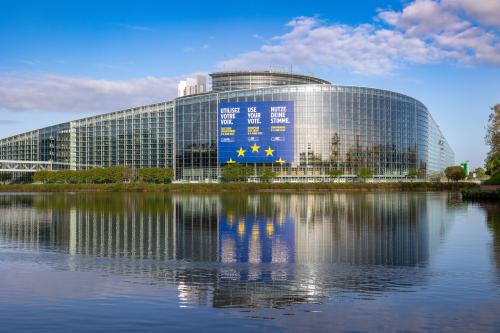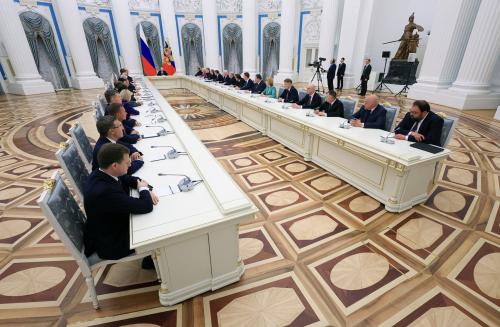The last four years have been a terrible period for European policymakers; unfortunately, the next four do not look much easier for them. Since 2008, the euro has been close to collapse at least three times, and yet every time, the political will of the national governments has proven strong enough to avoid the demise of the most advanced experiment of shared sovereignty in modern history. In the future, these governments need to do even more and subdue their national prerogatives and policymaking to the interest of the other countries as they work together towards common goals. It is this conflict between international economics and national politics that was a root cause of the crisis and one that I explore in my new book, Saving Europe: How National Politics Nearly Destroyed the Euro.
A massive liquidity injection of the European Central Bank has recently assuaged the fears of the markets, marking a change in the crisis that has now entered “Phase 2.” Eyes have turned—arguably too swiftly—from an almost hourly risk of collapse to a longer assessment of structural convergence between the stronger and the weaker countries. A disenchanted eye would see that a dangerous complacency has already resurfaced in the mindset of national governments. Just one day after the EU fiscal treaty was signed at the 2011 EU spring meeting, Spain and the Netherlands put into question their fiscal commitments. In Italy, Mario Monti must now overcome the resistance of the political parties in reforming the labor market. Germany is accepting only a timid version of the reinforced firewall that should ensure stability to the sovereign debt market. Berlin’s logic is that the decline in the market tensions proves that better policies in the other countries, not more money, is what is needed to solve the crisis.
In fact, the ECB has merely bought more time for all the national governments to adjust their policies. Herein lies the paradox. “Phase 2” is proving more difficult, as it delves deeper into the real core of the political challenge—governments in both the periphery and core of Europe must share sovereignty and work together to achieve a fruitful convergence of their economies.
The governments of ailing countries have fallen, opening the way for new pro-European executives to change the structure of their countries at breakneck pace. But mistrust is still strong as capitals have been hastily repatriated. Each country is almost as financially isolated as in the decades before the euro, but now without its own monetary policy or currency. In this context, it is very difficult for Greece, Portugal, Ireland, Spain, and Italy to regain competitiveness while also reducing their public sector deficits. If mistrust prevails and capital does not flow from the savings-rich countries like Germany, weak demand and low inflation will make the fiscal adjustment of these periphery nations so difficult and convergence so remote that markets could once again begin to doubt the sustainability of the euro.
In order to converge in competitiveness, the weaker countries need to increase their relative productivity, although this is only possible through economic cooperation with the stronger nations. In a standard definition, a competitive economy provides the institutional environment necessary to foster the development of highly productive firms. Such firms sell their goods and services abroad profitably, contributing to longer-term economic growth and improving export growth, market share and current account balances. For those firms, prices, costs, and wages are important factors. But for firms—and thus countries—to successfully adjust to the global market, the range and quality of the products a country exports can be even more important, as the ECB recently stressed. Integrating the euro area requires that the South reduce its price structure and the North invest there.
The alternative is that the two areas remain isolated and that the adjustment happens through deflation in the south and inflation in the north (signs of which are already showing in the real estate markets). The result is that the common monetary policy will appear wrong-turned in all countries, although for differing reasons. A bad recipe for the acceptance of a monetary union. Dispelling mistrust and reactivating financial flow is therefore crucial for the survival of the euro area. The recently agreed fiscal treaty is part of this effort to rebuild trust, as would the development of a stronger financial firewall. Similarly, the completion of the single market will be even more important.
The reason why these steps are proving so hard is that the accountability of national politics is uncertain. Unless national policymakers are called to respect the rights of the other euro area citizens and taxpayers, trust will be occasional at best. The political side of “Phase 2” has to take center stage through a courageous political integration.



Commentary
No Complacency: Euro Survival Requires Political Union
March 29, 2012